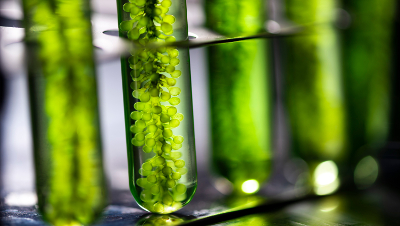Algal Research

Dissolved gas analysers can be valuable tools in algal research in several ways
They allow for the measurement and monitoring of the amounts of specific gases (like oxygen, carbon dioxide, nitrogen, etc.) dissolved in the water where algae grow.
Related Products
With the growing significance of algal research for renewable energy development and climate change mitigation, the demand for accurate and high-precision analytical tools has never been more critical.
The HPR-40 DSA boasts a unique ability to offer continuous and real-time tracking of dissolved gases in aquatic habitats. This function is key to deepening our comprehension of algal metabolism, shedding light on essential processes like photosynthesis and respiration.
Here’s how the HPR-40 DSA analyser can be used:
- Monitoring Photosynthesis: Algae, like all photosynthetic organisms, consume carbon dioxide (CO2 ) and produce oxygen (O2 ) during the day. At night, they consume oxygen and produce CO2 through respiration. A dissolved gas analyser can be used to track these changes, offering insights into the photosynthetic and respiratory rates of the algae.
- Assessing Health and Productivity: Changes in dissolved gas levels can indicate changes in algae health or productivity. For example, an unexpected drop in oxygen production might suggest a problem with the algae’s photosynthesis. Alternatively, high rates of oxygen production may suggest a highly productive algae culture.
- Optimizing Growth Conditions: By monitoring dissolved gas levels, researchers can adjust environmental conditions (like light levels, nutrient concentrations, etc.) to optimize algae growth. For example, if the water becomes saturated with oxygen, this might inhibit further photosynthesis, and a dissolved gas analyser could provide the information needed to mitigate this issue.
- Researching Algae Biofuels: Algae have the potential to be used as a renewable source of biofuels. Some algae strains can produce hydrogen gas under certain conditions, and dissolved gas analysers can be used to measure this production.
- Ecological Research: Changes in dissolved gas concentrations in natural waters can reflect changes in algae populations, offering insights into ecological dynamics. For example, a sudden decrease in dissolved oxygen might suggest a harmful algal bloom is occurring.
- Climate Change Research: Some types of algae play an essential role in global carbon cycles, and understanding how they process CO2 is critical for modelling climate change. Dissolved gas analysers can be used to study how changes in environmental conditions (like increased temperature or changes in light availability) affect algae’s carbon processing.
By enabling accurate and real-time measurement of these critical gases, dissolved gas analysers can provide researchers with valuable insights into the algae’s metabolic processes, their responses to environmental changes, and their potential applications in various fields like biofuel production or carbon sequestration.
Sampling Inlets for Hiden Mass Spectrometers: Gas, Vapour and Liquid Sampling Systems
Solutions for Dissolved Gas Analysis in Swimming Pools
Membrane Inlet Mass Spectrometry (MIMS)
pQA – Portable MIMS Quadrupole Analyser
Palmer Station, Antarctica | Gas Analysis
Research using the Hiden HPR-40 DSA to examine the seasonal cycle of biologically produced gases in surface waters of the West Antarctic Peninsula region.
UIC University of Illinois at Chicago | DEMS
Researchers prove surprising chemistry inside a potential breakthrough battery
Critex | Dissolved Gas Analysis
In-situ measurements in groundwater and surface water
University of British Columbia | Membrane Inlet Mass Spectrometry
Oceanic Trace Gas Measurements by Membrane Inlet Mass Spectrometry (MIMS)
Deeper Insights into Marine Fish Migration Amid Global Warming
Hiden HPR-40 DSA: A Game-changer in Algae Research
Detection of Nitric Oxide with a Hiden Mass Spectrometer
Gas Analyser for Measuring Dissolved Gases in Groundwater
Fermentation Process Monitoring with Off-Gas and Dissolved Gas Analysis
Pollutant Monitoring in Rivers
How the Portable Quadrupole Analyser (pQA) Can Be Used in Climate Change Studies

